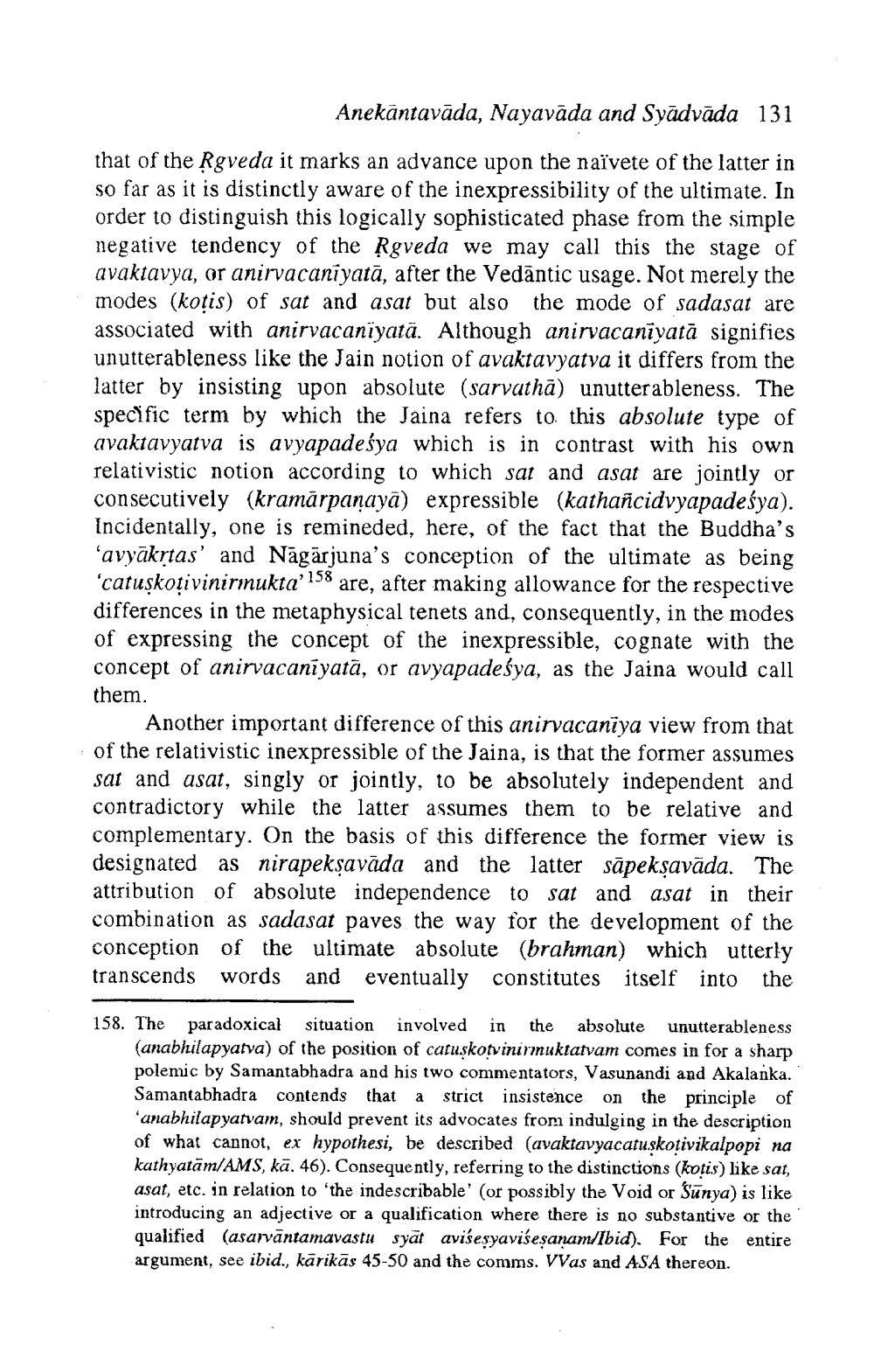________________
Anekantavāda, Nayavāda and Syādvāda 131
that of the Rgveda it marks an advance upon the naïvete of the latter in so far as it is distinctly aware of the inexpressibility of the ultimate. In order to distinguish this logically sophisticated phase from the simple negative tendency of the Rgveda we may call this the stage of avaktavya, or anirvacaniyatā, after the Vedāntic usage. Not merely the modes (koțis) of sat and asat but also the mode of sadasat are associated with anirvacaniyatā. Although anirvacaniyatā signifies unutterableness like the Jain notion of avaktavyatva it differs from the latter by insisting upon absolute (sarvathā) unutterableness. The specific term by which the Jaina refers to this absolute type of avaktavyatva is avyapadeśya which is in contrast with his own relativistic notion according to which sat and asat are jointly or consecutively (kramārpanayā) expressible (kathañcidvyapadesya). Incidentally, one is remineded, here, of the fact that the Buddha's 'avyākrtas' and Nāgärjuna's conception of the ultimate as being 'catuṣkoțivinirmukta' 158 are, after making allowance for the respective differences in the metaphysical tenets and, consequently, in the modes of expressing the concept of the inexpressible, cognate with the concept of anirvacanīyatā, or avyapadesya, as the Jaina would call them.
Another important difference of this anirvacaniya view from that of the relativistic inexpressible of the Jaina, is that the former assumes sat and asat, singly or jointly, to be absolutely independent and contradictory while the latter assumes them to be relative and complementary. On the basis of this difference the former view is designated as nirapekṣayāda and the latter sāpeksavāda. The attribution of absolute independence to sat and asat in their combination as sadasat paves the way for the development of the conception of the ultimate absolute (brahman) which utterly transcends words and eventually constitutes itself into the
158. The paradoxical situation involved in the absolute unutterableness
(anabhilapyatva) of the position of catuṣkotvinirmuktatvam comes in for a sharp polemic by Samantabhadra and his two commentators, Vasunandi and Akalanka. Samantabhadra contends that a strict insistence on the principle of 'anabhilapyatvam, should prevent its advocates from indulging in the description of what cannot, ex hypothesi, be described (avaktavyacatu.skotivikalpopi na kathyatām/AMS, kā. 46). Consequently, referring to the distinctions (kotis) like sat, asat, etc. in relation to the indescribable' (or possibly the Void or Sünya) is like introducing an adjective or a qualification where there is no substantive or the qualified (asarväntamavastu syāt avisesyavisesanam/Ibid). For the entire argument, see ibid., kārikās 45-50 and the comms. VVas and ASA thereon.




